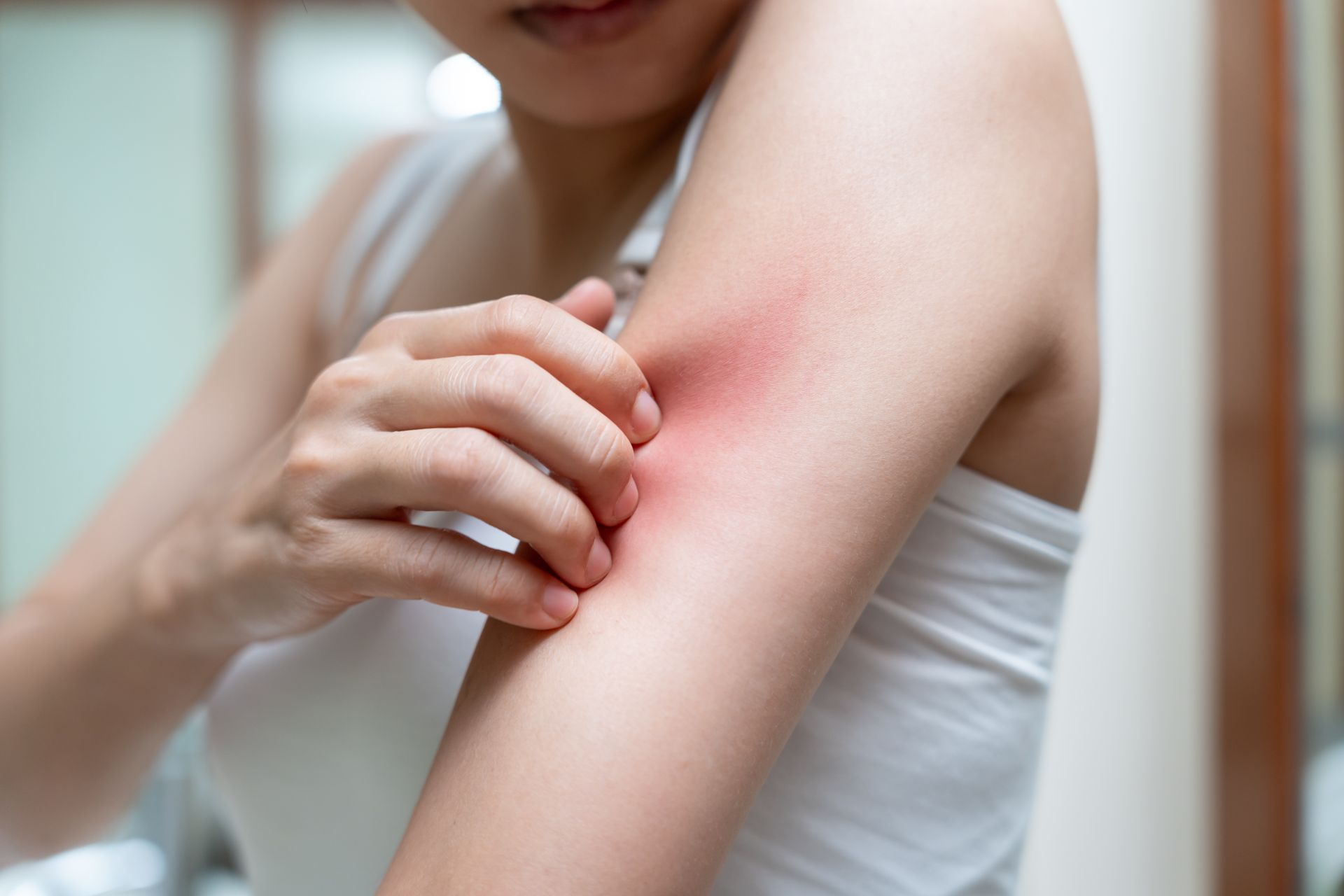That Stings! Tips to Staying Safe with an Insect Allergy
At Advanced Allergy & Asthma Care Center in Florida, we emphasize the importance of safety in managing insect allergies. Ready to regain control of your insect allergy? Don't navigate this journey alone. Reach out to our experienced allergists in Florida today for personalized care and support.
Understanding Your Immune Response to Insect Bites
While these reactions are your body’s defense against perceived threats, in the case of an allergy, they can lead to unintended consequences. It’s important to be aware of these potential risks and seek medical advice if you suspect you have an insect venom allergy.
The Spectrum of Symptoms
- Difficulty in breathing or shortness of breath
- Rapid decrease in blood pressure
- Feeling dizzy or faint
- Loss of consciousness
Bee Sting Allergy Treatment

Dealing with a bee sting allergy requires swift and informed action. Here’s a detailed look at the various treatment options available:
- General Treatment For Mild Reactions
Certain over-the-counter medications may relieve individuals experiencing mild reactions to bee stings. Antihistamines like diphenhydramine are effective in reducing itchiness and swelling. Moreover, you can apply topical corticosteroids, such as hydrocortisone cream, directly onto your stung area to lessen swelling.
- General Treatment For Severe Reactions
In cases of severe allergic responses, like anaphylaxis, seeking urgent medical help is crucial for this life-threatening condition. If you or someone you know experiences these symptoms after a bee sting, do not hesitate to call an allergy care center immediately.
- Epinephrine Administration
Epinephrine, commonly administered via an auto-injector (EpiPen), is the primary treatment for anaphylaxis. This medication works rapidly to reverse the symptoms of an allergic reaction and can be life-saving in emergencies. For individuals with a known bee sting allergy, it’s imperative to always carry an epinephrine auto-injector with them and know how to use it properly.
- Emergency Action Plan
Developing an action plan with your allergist is crucial for effectively handling allergic responses to wasp stings. This plan should provide clear, step-by-step instructions for identifying allergic reactions, administering epinephrine, and seeking additional medical assistance. Sharing this plan with family members, friends, and caregivers ensures that everyone is prepared to respond in an emergency, fostering a sense of control and preparedness.
- Follow-Up Care
After experiencing a severe allergic reaction to a bee sting, follow-up care with an allergist is crucial. Your allergist can assess your allergy risk, provide guidance on prevention strategies, and adjust your treatment plan as needed. They might suggest allergy tests to pinpoint additional allergens and create a comprehensive treatment plan.
- Allergy Immunotherapy
For individuals with recurring bee sting allergies, allergen immunotherapy, commonly known as allergy shots, may be recommended. This treatment gradually exposes the body to small doses of bee venom, desensitizing the immune system. Allergy immunotherapy can significantly reduce the severity of allergic responses and enhance the well-being of those with bee sting allergies.
- Lifestyle Modifications
Alongside medical interventions, certain lifestyle modifications can significantly lower the risk of bee stings. Proactive steps include avoiding known bee habitats, such as flowering plants and beehives, and wearing protective clothing outdoors.
Bees are typically most active during the spring and summer months when temperatures rise, and flowers bloom, usually from March to September. During these warmer seasons, bees are busy foraging for nectar and pollen to sustain their colonies. Educating yourself and others about bee sting allergies and how to respond in an emergency can help you stay safe, fostering a sense of control and empowerment.
Buzz Off Allergies to Insect Bite in the Sunshine State
Living with an insect allergy doesn’t limit you to indoor living. Equip yourself with knowledge and take preventive measures so you can safely enjoy the outdoors. Remember, being prepared and knowing how to react during an emergency can make a significant difference.
Ready to take control of your insect allergy and enjoy the great outdoors without fear? The first step toward a sting-free life is consulting with our expert allergists at Advanced Allergy and Asthma Care. Whether you're dealing with mild irritation or severe reactions, our dedicated team is here to provide personalized care and support.
Contact us at (727) 544-8100 or (813) 476-3394 to schedule your appointment today, or click the “Book an Appointment” button and let's tackle those insect allergies together!




